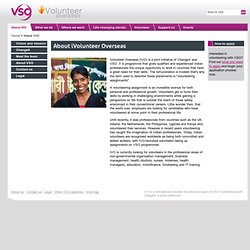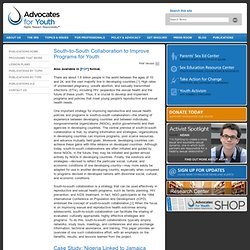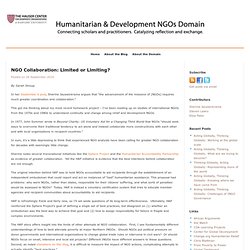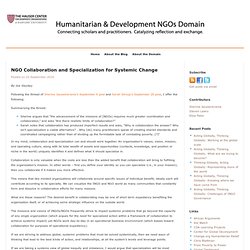

About IVO - ivo. iVolunteer Overseas (IVO) is a joint initiative of ChangeX and VSO.

It is programme that gives qualified and experienced Indian professionals the unique opportunity to work in countries that have a great need for their skills. The remuneration is modest that's why the term used to describe these placements is "volunteering assignments". A volunteering assignment is an incredible avenue for both personal and professional growth. Volunteers get to hone their skills by working in challenging environments while gaining a perspective on life that is outside the reach of those safely ensconced in their conventional careers. Little wonder then, that the world over, employers are looking for candidates who have volunteered at some point in their professional life. Until recently, it was professionals from countries such as the UK, Ireland, the Netherlands, the Philippines, Uganda and Kenya who volunteered their services.
Rural India, Rural Development, Indian Villages, Rural Project, Rural Poverty, India Farmer. System of NGOs who use Information Communication Technology (ICT) and digital media for good governance. The eNGO Challenge is a joint initiative of Public Interest Registry (PIR) and Digital Empowerment Foundation (DEF) to create an ecosystem for the civ. Job portal for social sector, non profit, NGO jobs, CSR, development. Ignite Your Soul. NGOs India : Online Database and Resources of Indian NGOs, NPOs, VOs; Funding Resources and Database. Mango: TT26 Building Partners' Financial Capacity.
Top Tips 26 If you implement your programmes with the help of local partners, it makes sense to assess and strengthen their skills, confidence and systems to manage financial resources efficiently and effectively.

And if you are an implementing partner NGO, having strong foundations for managing your funds will ensure fruitful and lasting partnerships. In this Top Tip, we share some ideas on how NGOs can work together to develop an effective capacity building strategy, and thereby strengthen partnership relationships. 1. Building trust Strong partnerships are built on trust and open communications.
Senior managers and Board members, not just finance staff, must be actively involved throughout the process to ensure ownership and a high-level commitment to change. 2. First, we need to identify if and where a partner needs to strengthen capacity. Sometimes a more detailed, external, financial systems review is needed – eg where a significant ‘scaling up’ of operations is planned. 3. 4. 5.
ServiceSpace.org. Partnerships. NGOs are major actors in the field of humanitarian response whose resources and expertise are often greater – and may differ from – those of UN agencies. Given that no agency can fulfill all humanitarian needs alone, the UN and other international organizations, the Red Cross Red Crescent Movement, and NGOs have a responsibility to coordinate their work. While the IASC is intended to be an inclusive and representative mechanism for humanitarian coordination, it remains largely UN-centric.
For NGOs, IASC discussions may seem at times to be out of touch or even irrelevant when compared with the reality they see on the ground. In order for the IASC to better reflect operational capacities, the 2003 External Review of the IASC recommended the creation of an outreach mechanism for enhanced dialogue with NGO Consortia, in particular with representatives of their members. The Sphere Project. South-to-South Collaboration to Improve Programs for Youth. Also available in [PDF] format.

There are about 1.8 billion people in the world between the ages of 10 and 24, and the vast majority live in developing countries.[1] High rates of unintended pregnancy, unsafe abortion, and sexually transmitted infections (STIs), including HIV, jeopardize the sexual health and the future of these youth. What's current. NGO Collaboration: Limited or Limiting? Posted on 20 September 2010 By Sarah Stroup In her September 6 post, Sherine Jayawickrama argues that “the advancement of the missions of [NGOs] requires much greater coordination and collaboration.”

This got me thinking about my most recent homework project – I’ve been reading up on studies of international NGOs from the 1970s and 1980s to understand continuity and change among relief and development NGOs. In 1977, John Sommer wrote in Beyond Charity: US Voluntary Aid for a Changing Third World that NGOs “should seek ways to overcome their traditional tendency to act alone and instead collaborate more constructively with each other and with local organizations in recipient countries.”
In sum, it’s a little depressing to think that experienced NGO analysts have been calling for greater NGO collaboration for decades with seemingly little change. HAP is refreshingly frank and fairly new, so I’ll set aside questions of its long-term effectiveness. NGOs want to avoid working at cross-purposes. NGO Partnership System. How to Start an NGO. NGO Collaboration and Specialization for Systemic Change. Posted on 22 September 2010 By Joe Stuckey Following the thread of Sherine Jayawickrama’s September 6 post and Sarah Stroup’s September 20 post, I offer the following.

Summarizing the thread: Sherine argues that “the advancement of the missions of [NGOs] requires much greater coordination and collaboration,” and asks “Are there realistic limits of collaboration?” Sarah notes that collaboration has produced imperfect results and asks, “Why is collaboration the answer?